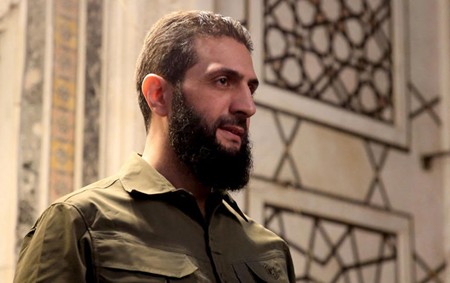Syria has experienced a change that will reverberate across the world. The regime of former President Bashir Al Assad and the dynasty his father Hafez had founded are no more. A new leadership has emerged from the ruins of the repressive regime. The rebels now in control of Syria have taken a more pragmatic approach. The leader of the main rebel organization Hay’at Tahrir Al-Shams and the overall alliance of Rebel groups Abu Mohammad Al-Julani – who now goes by his real name is Ahmed Hussein Al-Sharaa – has recognised that Prime Minister Mohammad Al Bashir from the previous government should remain in charge of his position and state institutions.
The decision was announced after opposition groups seized several cities in a lighting offensive that lasted a few hours.
To distance himself from the jihadist image, al-Julani engaged with the public, visiting refugee camps and overseeing aid for earthquake victims in 2023. He also cited the Taliban’s return to power in Afghanistan as a model for balancing tactical compromises to achieve strategic goals. His policies reflected a broader strategy to demonstrate HTS’s ability not only to wage jihad but also to govern effectively. Prioritizing stability and recovery, he sought to present Idlib’s achievements as a model of success, boosting HTS’s legitimacy and advancing his political ambitions. Under his leadership, HTS defeated other jihadist and rebel groups, consolidating power in a single entity. However, before launching a major offensive against Assad’s regime in 2024, he faced protests. Critics accused al-Julani of authoritarianism and suppressing dissent. They also claimed that HTS deliberately avoided combat against government forces and obstructed other jihadists from doing so to appease international players.
The behaviour of Julani towards Syria’s wider public particularly during the 2023 earthquake and the overall civil war indicates a benign attitude. Al-Jalani or Al-Sharaah as he must now be called has been displaying a more pragmatic approach to interacting with the ordinary Syrian people. The ordinary people who have been impacted the most by the civil conflict. Although he looks to the Taliban’s reassumption of power in Afghanistan as inspiration and hope, his approach to leading the nation and country appears to be more flexible. The Syrian people after experiencing brute force under Assad’s rule will want a leader with a more pragmatic and flexible view of how the country should be run. Is Al-Sharaah going to be that leader? It is a question that needs to be answered. Al-Sharaah may be benign but can he be firm when the time is right? And does he have a vision for the future?
He will have to agree to hold elections.
In response, several reforms were implemented. HTS restructured its security service, which had been accused of human rights violations, and established a department to handle complaints against authorities. The group argued that unification under its leadership was essential for overthrowing Assad. Thus, HTS had to balance portraying a modern, moderate image to gain local and international support while retaining its Islamist identity to satisfy hardline supporters. After decades of Assad’s regime, it fell within mere days, largely due to the fighters under al-Julani. On Sunday, he entered Damascus as part of a column of rebels, spoke at the iconic Umayyad Mosque, and declared the “victory for the Islamic nation.”
Al-Sharaah is clearly trying to win over the approval of the international community with the reforms he has implemented. But it will be through holding elections for a new parliament and president that Syria could change as well drawing up a new constitution that is inclusive of all its people. Even those minorities that have unorthodox views on religion. The new government has a delicate path to thread for unity. Al Sharaah due to his benign and pragmatic attitude could be the likeliest candidate to be president if the people chose him. Assad fell the way he did because he was largely out of touch with reality having owed his position to being the previous president’s son and uninterested in pursuing deeper democratic reform. He depended on divide and rule tactics.
Al-Sharaah needs to engage with all the relevant parties to move Syria forward.
Julani has also purged the more radical elements of HTS and helped craft a technocratic administration. “Julani’s destiny is being written right now. Just how he manages the next phase, and whether HTS manages to remain inclusive, that will determine what his legacy will be,” said Jerome Drevon, a jihad expert at the Crisis Group think-tank, to Financial Times. Analysts describe Julani as pragmatic but opportunistic, willing to shift gears as circumstances change, including taking advantage of a moment when Assad’s allies in Hezbollah, Iran, and Russia are distracted by other conflicts. Assad’s chief international backer, Russia, is preoccupied with its war in Ukraine, while Hezbollah has been weakened by a yearlong war with Israel. Meanwhile, Iran’s regional proxies have been degraded by Israeli regular airstrikes.
There is certainly an opportunity for Assad to return to power if Al-Sharaah ends up making the wrong choices. But then any attempt by Assad to take advantage of an opposition victory gone awry could backfire on him like it did with Yemeni President Ali Abdullah Saleh and end with his death. But then Assad is also facing a warrant for his arrest in the International Criminal Court (ICC) in the Netherlands. For genocide. Going to be interesting to see how that turns out. Sharaah for his part is now in an interesting position that needs to be monitored carefully. He seems fortunate that those who would have opposed him like Iran, Putin’s Russia and Hezbollah in Lebanon are pre-occupied with their own conflicts. Putin might even offer an olive branch, if possible, to Shaarah. Even Iran could do the same.
It’s all a matter of time before we finally know what having the rebels under Julani/ Shuraah in power will mean.
Article written by:
Yacoob Cassim
Journalist at Radio Al Ansaar






